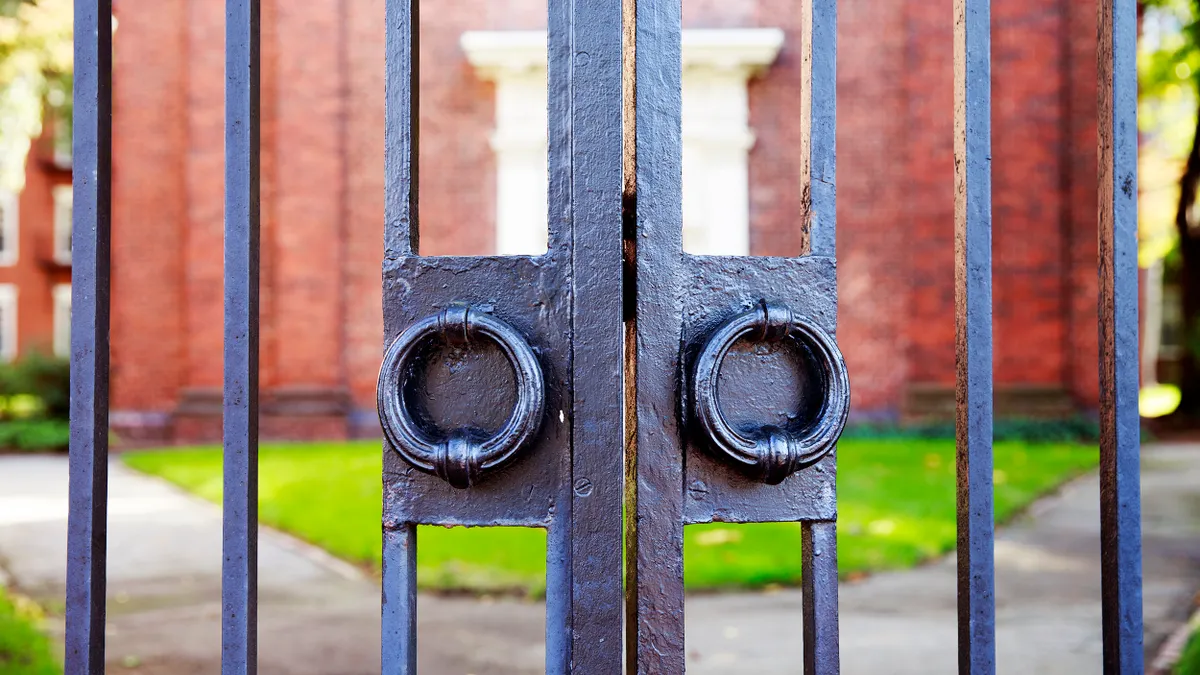Dive Brief:
-
As the fall term progresses, many colleges continue to punish students who don't follow safety measures designed to stem the spread of the coronavirus.
-
School officials are cracking down hard, in some cases, banning students from campus, and at one institution, cutting off their Wi-Fi access.
-
Behavioral experts have said punitive measures won't always stop students from ignoring the rules.
Dive Insight:
Colleges have been coming down on student partygoers and other rule breakers since classes began this term, suspending individuals, as well as entire student organizations. They've also kicked students out of campus housing and even opened up the possibility they'd be expelled.
Campus social gatherings have continued despite the potential punishments, which was somewhat predicted. Only 40% of returning sophomores, juniors and seniors said in a July survey they trusted their classmates to adhere to colleges' COVID-19 guidelines.
But as confirmed case counts rise nationwide, and colleges determine if and how to send students home for Thanksgiving, some institutions are threatening new consequences.
Boston University said this month it was dropping the maximum number of students allowed at on- and off-campus gatherings from 25 to 10, following a "worrisome increase" in COVID-19 cases among students and employees.
Students who fail to get their mandated coronavirus tests or report their symptoms to the university within 48 hours of receiving a warning will have their student ID card and WiFi access disabled. Those students also can't participate in classes, even remotely, the university said, until they take a test or provide the requisite symptom information.
Similarly, Virginia Tech students who fail to take a coronavirus test when asked to are referred to the university's conduct office. And the State University of New York instituted stiffer penalties earlier this term for violating COVID-19 safety rules, including suspensions and expulsions. Some institutions have partnered with local law enforcement to monitor policy violations.
Behavioral experts told Education Dive this summer that explaining to students why they should change their behavior and what actions to take is far more effective than punishments alone.
Anna Song, a health psychology professor at the University of California, Merced, said she doubts punishing individuals will send the right message for colleges trying to reduce transmission rates. Harsh consequences will simply drive bad behavior underground and it will go unreported, she said.
Song said she worried about cutting off students' educational access through suspensions or other means.
"I understand the sentiment," she said. "But I question the effectiveness of that approach."
Many colleges have tended to be more educational than punitive. Some, for instance, have worked with student leaders to encourage mask-wearing.














